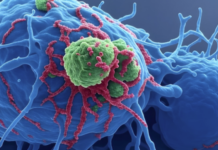Jerusalem– Israeli researchers have identified a critical network of immune cells that enables the human body to safely digest food without launching harmful immune responses, shedding new light on the complex process known as oral tolerance.
The discovery, led by scientists at the Weizmann Institute of Science (WIS), offers valuable insight into how the immune system distinguishes between harmful pathogens and harmless substances like food. The findings, reported by Xinhua and preprinted in the journal Nature, may pave the way for new treatments for food allergies, sensitivities, and autoimmune conditions like celiac disease.
Oral tolerance is the body’s essential ability to recognize food as non-threatening, thereby preventing unnecessary immune responses and inflammation while still defending against real infections.
“Think of it like a ceasefire agreement — if an aggressor crosses the line, the military will still respond despite the peace accord. The immune system operates similarly,” explained Dr. Ranit Kedmi of the Weizmann Institute’s Systems Immunology Department.
Until now, scientists believed dendritic cells were responsible for initiating oral tolerance. But studies in animal models revealed that even when dendritic cells were removed, the immune system still refrained from attacking food — indicating other players were involved.
The WIS team has now identified ROR-gamma-t cells, a rare type of immune cell, as the key initiators of the oral tolerance process. These specialized cells activate a cascade involving four different immune cell types that ultimately prevent CD8 T cells—the body’s immune “attack dogs”—from reacting to food proteins.
When this regulatory mechanism fails, the immune system can mistakenly treat food as a threat, leading to allergic reactions, food sensitivities, or autoimmune diseases triggered by dietary proteins like gluten.
The researchers also discovered that during infections, the immune system can temporarily suspend oral tolerance in order to fight off invading pathogens—only to restore the tolerance mechanism once the threat has passed.
“This study reveals a previously underappreciated level of specialization in the immune system,” said Dr. Kedmi. “It’s not always dendritic cells calling the shots. In the case of food tolerance, we’ve found that rare, specific immune cells are solely dedicated to ensuring we can consume food without triggering an immune attack.”
The discovery opens new avenues for therapeutic interventions aimed at correcting immune misfires related to food, potentially benefiting millions affected by allergies and gastrointestinal disorders. (Source: IANS)













